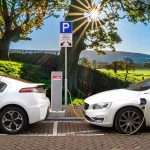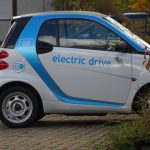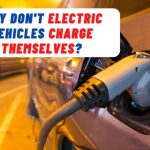Last Updated on January 17, 2023 by
It’s hard to say for certain, but it seems likely that electric cars will eventually take over petrol cars. There are several reasons for this:
- Electric cars are more efficient than petrol cars and produce fewer emissions.
- Electric models are becoming increasingly affordable as technology improves.
- Electric motors have a smaller environmental impact than petrol cars.
Why electric cars will never take over
While electric cars may seem like a more environmentally friendly option, they can negatively impact the environment due to the use of fossil fuels for electricity generation.
In addition, electric grid cars are much more expensive and have a limited driving range compared to conventional vehicles.
These limitations make it unlikely that electric cars will fully take over the automotive market.
Furthermore, any increase in electric car usage would also require a significant increase in electricity generation, leading to further reliance on fossil fuel costs and possibly exacerbating climate change.
The solution to reducing our reliance on fossil fuel-powered transportation lies not in electric cars but in alternative forms of transportation. This may include public transit and bicycles, along with advancements in renewable energy technology.
Will electric cars replace fuel cars?
Despite their increasing popularity, electric vehicles still face challenges in terms of cost, availability of public charging station for full charge, and limited range.
The infrastructure to support them is also not yet in place for widespread adoption. Additionally, producing electric cars requires a significant amount of energy and resources, especially for batteries.
On top of this, there are concerns about where the electricity used to power these new vehicles comes from – if it’s primarily from fossil fuels, then the environmental benefits may be limited.
All these factors contribute to natural gas- and diesel vehicles remaining dominant in the market.
However, as technology continues to advance and more investment is made in supporting infrastructures, one-day electric cars could become the majority on our roads.
Until then, they will likely exist alongside traditional fuel cars for the foreseeable future.
Why electric cars will never work, some people say
Electric vehicles (EVs) are viable for sustainable transportation. With technological advancements, EVs now have longer ranges and faster charging times.
While there may not be as many charging stations currently available as traditional gas stations, more and more charging infrastructure is being developed every day.
Additionally, the long-term savings on fuel and maintenance costs often outweigh the initial higher cost of purchasing an EV.
With major automakers investing in the electric vehicle market and countries around the globe committing to phasing out fossil fuel vehicles, it’s clear that EVs are here to stay.
The myth that electric cars will never work simply isn’t true. It’s long time since we embraced this clean and efficient mode of transportation to benefit our planet and future generations.
Will electric cars replace gas cars in the future?
While it’s clear that electric vehicles are on the rise, it is unlikely that they will fully replace gas-powered cars shortly.
Additionally, changing infrastructure to support electric vehicles would require a significant investment from both the public and private sectors. At this point, it is more likely that we will see a mix of gas and electric cars on the road for many recent years to come.
However, as technology continues to improve and more EV owners prioritize sustainability, they could become the dominant form of transportation in the distant future.
Will all cars be electric by 2030?
An increasing trend toward adopting electric vehicles suggests that they will play a significant role in the transportation sector by 2030.
According to projections, there will be 26.4 million EVs on U.S. roads by 2030–accounting for nearly 10 percent of all light-duty vehicles (cars and light trucks) at that time.
Government policies from president biden and consumer demand drive the shift towards EVs, with various countries setting targets for decreased reliance on fossil fuels and increased adoption of clean energy.
Advancements in technology have led to improved battery life and a wider range of available EV models. It may not be realistic to expect every car on the road to be electric by 2030; we will likely see continued growth in the EV market.
Can you still drive gas cars after 2035?
Starting in 2035, the sale of new gas-fueled vehicles will no longer be allowed. However, this does not mean drivers will have to give up their gas-powered vehicles.
Motorists who already own these cars will be able to continue using them as normal. In addition, purchasing used gas-powered cars will still be allowed after the 2035 deadline.
This decision accounted for budget constraints and car availability for individual customers.
However, it is important to note that steps will still be taken to encourage a shift toward zero-emission vehicles or plug-in hybrid.
When will electric cars take over?
It is difficult to say when electric cars will take over because of so many factors to consider. The cost of electric cars, the availability of charging stations, and consumer preference are all important factors and changes every last week.
For example, several major car companies have announced plans to release new models of electric cars in the next few years. In addition, the cost of electric cars is dropping as technology improves.
Electric cars like nissan leaf, general motors, or tesla model will likely become more popular in the coming years. This is because the consumers become more aware of their benefits and as technology advances.
What will happen to petrol cars in the future?
Very few new petrol cars will be sold by 2030, and almost all cars on the road will be electric.
The rise of electric vehicles is inevitable. They’re cheaper to maintain and operate, better for the environment, and just make sense from a financial standpoint.
Over the next decade or so, we’ll see an increasing number of electric cars hitting the market. And as battery technology continues to improve, petrol cars will become increasingly obsolete.
What percentage of cars will be electric by 2050?
There is no definitive answer to this question. Some experts believe that as many as 30% of cars will be electric by 2030, while others believe the number will be closer to 75%.
The reality is that it largely depends on several factors, including government regulation and consumer demand. Whatever the percentage, it’s clear that electric cars are increasingly becoming the norm.
Will there be gas cars in 2050?
In the next thirty years, the number of light-duty vehicles or new cars on roads globally will increase to three billion. Of those vehicles, at least half will use internal combustion engine running on petroleum.
What percentage of cars are electric 2022
The electric vehicle market is still in its infancy, but impressive growth is expected over the coming years. Currently, it’s estimated that around 1 percent of vehicles on American roads are powered by electricity.
This growth can largely be attributed to advancements in the availability and efficiency of electric vehicle technology. Also, government incentives and regulations promote the adoption of these clean energy vehicles.
Overall, it’s clear that the percentage of electric vehicles on our roads will continue to increase in the coming years compared to last year.
Why electric cars are the future of road transport
- Electric cars are much more efficient than gas cars–about 3 times more efficient. Electric cars produce about 3 times fewer emissions than natural gas cars.
- Electric cars are cheaper to operate and maintain than gas cars.
- Electricity is a cleaner form of energy than gasoline, so electric cars produce fewer emissions and contribute less to climate change.
- Electric vehicle sales have a smaller environmental impact than gas vehicles in terms of the number of resources used to manufacture them and the amount of waste they produce over their lifetime.
How many electric cars in the U.S. 2022
In 2022, 56,028 battery-electric vehicles were sold in the United States. This number is growing rapidly as electric cars become more popular and accessible.
FAQ relating to will electric cars take over petrol cars
Will electric cars eventually take over?
The market for electric vehicles is expanding yearly at a rate of 21.7%. Various reasons, including environmental concerns, are propelling this growth. Based on these trends, it’s estimated that the market will grow from 8.1 million units to 39.21 million units between now and 2030.
Will gas be available in 10 years?
The cost of gasoline is constantly increasing, and this likely won’t change anytime soon. Despite market fluctuations, the price of gas will continue to rise as oil becomes increasingly difficult (and costly) to extract. In other words, falling supplies due to diminished resources will cause gas prices to increase even more.
Why do people still buy gas cars?
Gasoline cars have many plus sides: they’re simple to operate, filling them up is a cinch, and their driving range means you can take spontaneous cross-country road trips. Plus, gas vehicles typically cost less to purchase prices outright than electric cars. All these reasons are why gasoline cars continue to be popular among drivers.
Are gas cars going to become illegal?
Hooman Shahidi, the co-founder of electric vehicle charging company EVPassport, believes that the switch from gas cars to electric ones could happen by 2050, much sooner than previously thought.
The Canadian government has banned fuel-powered motorcars or new car sales from reducing emissions as of 2035.
Inhabitants of many countries and cities worldwide will soon have to find an alternative method of transportation. As fossil fuel-powered vehicles such as cars and buses will be banned.
Key Takeaways
- Electric cars offer several advantages over petrol cars, including lower emissions, reduced running costs, and greater convenience as it is a tipping point.
- The cost and availability of batteries are major obstacles to the widespread adoption of electric cars.
- The transition to electric cars will require significant investment in new infrastructure, including fast chargers, single charge, and battery storage facilities.
- Why Electric Vehicles Are Not Popular - January 29, 2023
- How Long Do Tesla Batteries Last Per Day? Battery Facts - January 25, 2023
- Do Electric Vehicles Have Air Conditioning? - December 21, 2022










